12DOVE Verdict
Mirror's Edge Catalyst is an interesting game with some strong ideas but not enough variety.
Pros
- +
Well-executed free running mechanics
- +
Beautifully stylised city
Cons
- -
Gives up everything it has too soon
- -
Terrible combat
Why you can trust 12DOVE
I’ve never wanted to like a game more than Mirror’s Edge Catalyst, but struggled to do so. It tries to achieve something different and there are moments when its system of sliding, wall running traversals perfectly align. Similarly, the combat, built on evasion and spacial awareness, can feel hugely satisfying. But over the long haul the highs are passing as the game struggles to stretch its limited design over its full story.
The reason behind all this high altitude parkour involves a younger version of the previous game’s hero, Faith, going up against KrugerSec, an oppressive corporation that runs the city. There’s a debt to pay, a digital MacGuffin to move things along and a bit of political prisoner taking. The late stages of the story get really interesting but the journey there feels loosely connected. It doesn’t help that the world Catalyst occupies is empty, empty roof tops. You can see cars moving about in the streets below, or find the occasional person standing around to give you a side mission but otherwise the place has the clinical sterility of a deserted Apple store. It feels strange to have cutscenes full of people and life, while the city is devoid of it and there’s a profound disconnect between the two. This was never going to be GTA levels of bustle but the world is a void and moving through it is the only thing that brings it to life.
After only a few hours in I found myself thinking, is this too much running? Obviously you could argue that a game about free running should probably have plenty of it, but here it’s the only voice you have in the world. You run to reach a mission that involves running and then run away when it’s over. When I mentioned this to a friend they pointed out that all you really do in a shooter is shoot, which is similar but not strictly true. There’s a pace that can vary even when all you have is a trigger. Sometimes you shoot a lot, sometimes not so much. Sometimes you shoot different guns. In Catalyst you run. Over things, under things, along things, but the pace never changes.
At times it can feel amazing. The city is a large open space and exploring it at speed can have some spectacular moments. When you string together a successful line of jumps, slides - grabbing a pipe to hurtle around a corner and then leaping from a railing to fall into a roll on a rooftop 20 feet below - it’s fantastic. But it reaches this level fast. Within a couple of hours I’d unlocked most key skills and, narrative-fed upgrades aside, my abilities changed little. There is a progression system giving you some choice over what upgrades to pick but these are unlocked in such a way as to realistically bottleneck progression in quite a linear fashion.
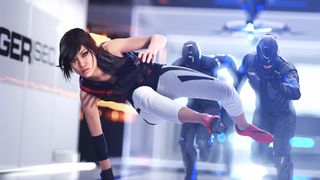
Faith’s core abilities to wall run, jump, roll and slide give you plenty of freedom to navigate obstacles but the feedback from doing so never quite clicks. Even when you string together good a good set of moves: slipping under pipes, or popping over air conditioning units, lifting your feet clear for extra speed... the moments of exhilaration are fleeting. The risk and momentum that should get your heart pounding never really comes - the speed difference between a perfectly timed move and a fluffed one isn’t that huge. There’s a new grappling hook for swinging across larger spaces which can add a little rush as you arc from one building to the next, but things rarely feel dangerous.
On the combat side, Catalyst has a really interesting system of evasion and positioning, where you’re dodging attacks and trying to kick people over railings. Faith isn’t really meant to be a bruiser though, so for most of the game you’re using light attacks mid-run to push people aside. However, there a few specific combat sections and while the fighting mechanic is a great idea, it’s awful in practice. Against one or two guards you can duck left, kick right and watch someone fly over an edge into empty space with lethal precision. But the game often sets you up against several enemies at once, in various combinations of light troops, heavy hitters and gun-wielding ranged types. Completing these sections often feels like as much by luck and sheer bloody mindedness as they are skill.
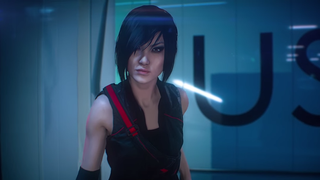
It’s not that Mirror’s Edge Catalyst isn’t fun, it’s just that it has such a narrow focus to its design that there’s not enough tonal variation, even with puzzle climbing sections, racing bits and so on. It does one thing well but only that thing, meaning you soon get used to it. Oddly there are a couple of missions, towards the end, that nail everything the game gets right and are huge amounts of fun as a result. They use more confined spaces where speed and flow build into something valuable as bullets whistle past. Where guards can be dropped beautifully from wall running kicks without breaking pace. There’s a momentum and crescendo to these sections that are lost in the more perfunctory open-world traversals.
Catalyst does some interesting stuff but doesn’t add enough to the mix. It’s a game I enjoyed but one that also left me feeling partly frustrated and sad. While it has good ideas and mechanics, they peak early and, in such a sparse and minimalist space, struggle to carry the whole game.
Mirror's Edge Catalyst was reviewed on PS4.
More info
| Genre | "Adventure" |
| Description | Mirror's Edge Catalyst is a fresh start for Hope's high-flying parcel delivery exploits. |
| Franchise name | Mirror's Edge |

I'm GamesRadar's Managing Editor for guides, which means I run GamesRadar's guides and tips content. I also write reviews, previews and features, largely about horror, action adventure, FPS and open world games. I previously worked on Kotaku, and the Official PlayStation Magazine and website.
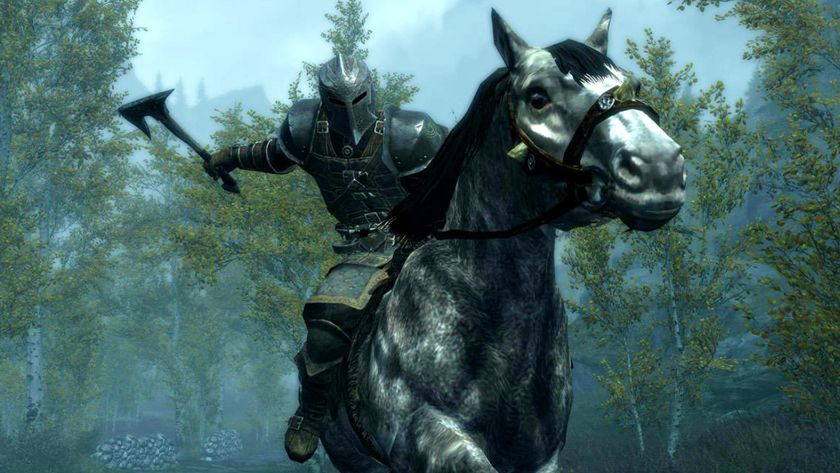
Ex-Bethesda dev turned indie says "good things often happen by accident," like that time Skyrim players convinced themselves the RPG's foxes were leading them to treasure
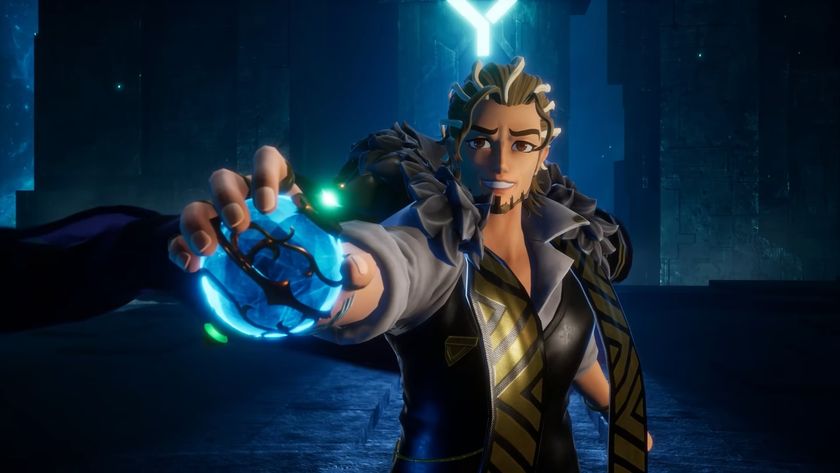
Palworld dev says the studio went dark for months because "the team was getting burnt out from all the social media stuff, I was getting burnt out, our CEO was under attack in Japan"
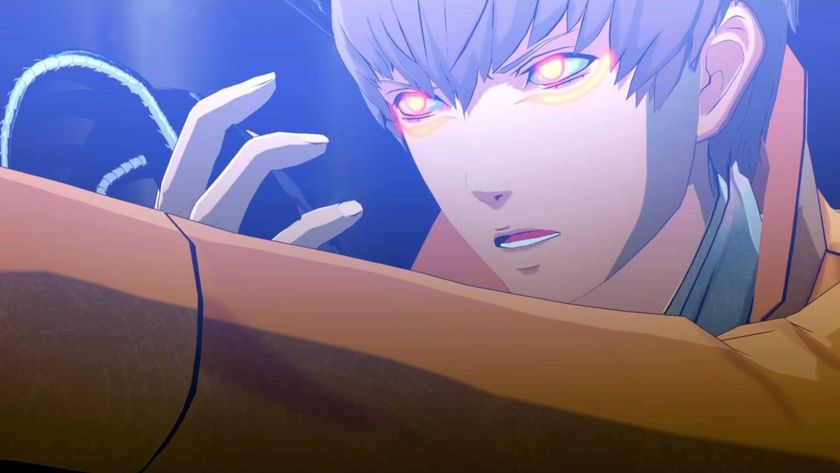
Metaphor: ReFantazio had to dial back an early battle system inspired by a notoriously brutal 2003 JRPG, because 20 years later, players found it "irrational" and "just not fun"










